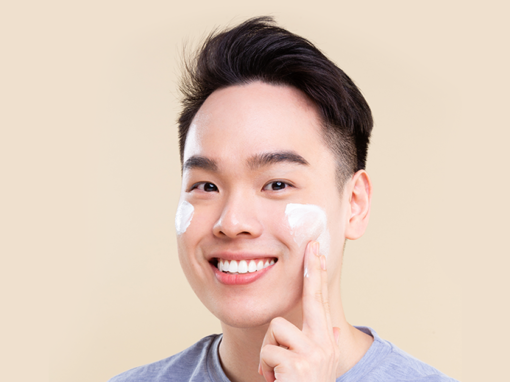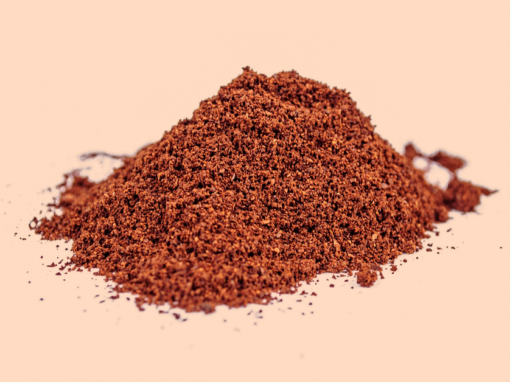90% of people in the world are affected by acne at some point in their life and can be experienced up until their 40s.
The good news is, it’s treatable, thanks to medication and cosmetic technology. Here’s what you need to know about acne and how to treat adult acne in men:
Here is everything you need to know about acne and how to treat it.

Anatomy of the skin
The skin is the human body’s largest organ. It is made up of three layers:
- Epidermis: the outermost layer of skin that protects your skin and acts as a waterproof barrier. It is also responsible for your skin tone.
- Dermis: It’s the layer below the epidermis. It has connective tissue, sweat glands, blood vessels, hair follicles and lymphatic vessels.
- Hypodermis: located below the dermis, it contains subcutaneous (under the skin) fat and connective tissue.
Your skin also has microscopic organs called sebaceous glands. These are attached to hair follicles located in the epidermis.
They secrete an oily and waxy substance called sebum, also known as oil-producing glands.
A Harvard Medical School article explains sebum as a complex mixture of sugars, waxes, fatty acids and other natural chemicals that form a protective layer against water evaporation. This means that sebum produces natural oil to coat, protect and moisturise your skin.
However, when sebum produces oil cells in excess quantity, it becomes trapped inside the gland. This results in acne. This is also the reason why acne is known as a disorder of sebaceous glands and hair follicles.
Why does acne occur in men?
Acne usually shows up as pimples, blackheads and whiteheads on the skin.
Puberty and hormonal changes in men are the prime reasons for it to occur. Additionally, having a family history of acne may also increase the likelihood of getting it during the teenage years.
However, some men also tend to get it in their 20s, 30s and beyond. The reasons for this could range anywhere between hormonal imbalances, environmental factors, medications, slow metabolism, stress and life conditions, diet, and lack of skincare.
Acne can be a distressing experience for men as it interferes with their daily lifestyle and self-esteem. In fact, a paper published in the Asian Journal of Research in Dermatological Science states that acne impairs the quality of life in most males.
What is hormonal acne in men?
Hormonal acne, as the term implies, is due to hormonal imbalance which leads to the overproduction of sebum in men. It means that the skin secretes much more oil than your body needs and therefore, pores get clogged.
It typically affects adult men in the age group 20-50 years. Hence, it is also known as adult acne. The typical symptoms are large red pimples and pus-filled cystic breakouts.
In men, hormonal fluctuations like excessive testosterone may sometimes be responsible for it.
Read more about what is hormonal acne in men
Body areas prone to acne
Acne can occur on any part of the body which has a high concentration of sebaceous glands. However, some of the common areas for men are:
- Face
- Neck
- Shoulders
- Upper arms
- Chest
- Back
What are the causes of acne in men?
Several factors can trigger acne. A few of the common causes are mentioned below:
1. Family history and genetics
Your family history and genetics are the primary cause of acne.
One parent or both parents, or even prior generations may pass it on to you. A study published in Nature Communications found that 15 genomes (complete set of genetic instructions in a cell) regions are linked to developing acne.
Another study also confirms that hereditary factors are linked to acne.
2. Stress
When you are stressed, your body starts working in fight or flight mode. It increases the production of cortisol and adrenaline hormones. This further leads to excessive sweating and oil production which cause clogged pores. This in turn results in acne.
Usually, stress acne appears on the oiliest part of your face, particularly on the T-zone. Apart from the normal pimple-like breakouts, it can also appear along with blackheads, whiteheads, dilated pores, glossy appearance and uneven or grainy texture like skin.
3. High levels of testosterone
Men can produce high levels of testosterone due to puberty, high blood pressure, infertility and high libido among a few other reasons. When testosterone goes up, it leads to excessive production of sebum combined with dirt and dead skin. This again results in clogged pores and thereby, acne.
4. Greasy skin products
If you are using greasy products, the oil levels may be over and above the natural oil that your body produces.
Moreover, these are difficult to rinse off with soap or face wash due to which your body doesn’t get cleaned properly. Additionally, your skin accumulates grime and pollutants, and the problem worsens when temperatures are high. It then leads to acne flare-ups.
It is therefore recommended to use water-based skincare products to keep acne in control.
5. Steroids
Steroids for bodybuilding or medical treatment contribute to acne by increasing the body’s immune system receptors called TLR2 which may play a role in acne breakout.
Steroid acne is a general side effect of corticosteroids treatments (man-made drugs with cortisol properties), especially prednisone (a class of drugs) which are used in the treatment of certain medical conditions. Steroid acne appears more uniform as compared to regular acne. The symptoms usually disappear when you discontinue steroids.
6. Medical conditions
Acne can occur as a side-effect as a result of some medicines can aggravate acne or cause acne-like breakouts, that includes:
- Antidepressants
- Oral corticosteroids
- Ciclosporin
- Dehydroepiandrosterone (DHEA) supplements
- Azathioprine
- Anticonvulsants
- Androgenic steroids
- B Vitamins
- Barbiturates
Apart from the above primary causes, there are several other reasons why you may get acne:
- Smoking
- Dietary supplements
- Lack of sleep
- Poor hygiene
- Tight-fitting clothes
Treatment for male acne
You can treat acne in a few days or weeks, depending on the severity of the problem. Here are some ways to treat it:
Topical medication
You can use topical medication like anti-acne cream on the area where you have acne. Look for medicines that contain retinoids or tretinoin, which are active compounds derived from Vitamin A.
See a medical profesional
A medical professional will diagnose the root cause of your acne and recommend a suitable treatment plan.

Antibiotics
A medical professional may also use certain antibiotics to treat acne.
These help to fight the condition by preventing bacteria growth or killing them completely. Antibiotics may also help to reduce redness and inflammation to some extent.
Check for underlying health conditions and get them treated
Certain endocrine and non-endocrine disorders or hormonal disorders can cause acne.
For example, if you see an increase in muscle mass or develop testicular or adrenal tumours, you may have high testosterone.
A medical professional can evaluate the symptoms and guide you on how to treat these health conditions.
Preventive measures for acne in men
The best way to prevent acne is to follow a disciplined skincare routine. You can take the following preventive measures:
- Use skincare products suitable to your skin type.
- Wash your face properly to remove excess sweat, dirt and oil.
- Use cold or lukewarm water on your skin.
- Wash your hair regularly to prevent excess oil from seeping onto your face.
- Exfoliate your skin once or twice a week.
- Moisturise your skin in the morning after bath and before going to sleep.
- Apply sunscreen when you step outdoors.
- Stay hydrated by drinking at least 6-8 glasses of water every day.
- Avoid acne-enhancing foods such as refined grains, sugar, fast food, chocolate and alcohol among a few others.
- Limit the use of cosmetics. Use products that are ‘non-comedogenic’ or non-acnegenic (safe for acne-prone skin), ‘hypoallergenic’ (less likely to trigger an allergic reaction) and fragrance-free.
- Do not pop the pimples as it might end up worsening the acne.

When should you see a medical professional?
If your chosen over-the-counter anti-acne products don’t work after 7-8 weeks of use or you don’t see any improvement with self-treatment, it’s time to visit a medical professional.
A medical professional will not only treat acne but also recommend the right skincare products to prevent breakouts in the future. She/he will take into your account your age, history of acne, type of acne, genetics and treatments you have already tried before.
When you start a dermatology treatment, be patient for the results to show. Skin conditions take time for healing and it also holds true for acne.
Conclusion
Acne may be difficult to deal with but help is available. Speak to our team of medical professionals about your skin concerns to find the right treatment for you.
You can easily manage it with preventive care, the right treatment and reliable anti-acne products.
You could also talk our medical professionals about your skincare concerns before trying our any men’s skincare products.
References
- F Ballanger , P Baudry, J M N’Guyen, A Khammari and B Dréno. Available at https://pubmed.ncbi.nlm.nih.gov/16484821/ (Accessed on 18th Feb, 2022)
- https://www.ncbi.nlm.nih.gov/books/NBK441980/#:~:text=The%20skin%20is%20primarily%20made,and%20contributes%20to%20skin%20tone
- https://www.aad.org/media/stats-numbers
- file:///C:/Users/Admin/Downloads/30115-Article%20Text-56485-1-10-20201211.pdf
- https://www.healthline.com/health/beauty-skin-care/sebum
- https://www.medicalnewstoday.com/articles/321550
- https://www.webmd.com/men/guide/acne-men
- https://health.clevelandclinic.org/when-should-men-see-a-dermatologist-for-adult-acne/
- https://www.webmd.com/skin-problems-and-treatments/acne/features/medications

